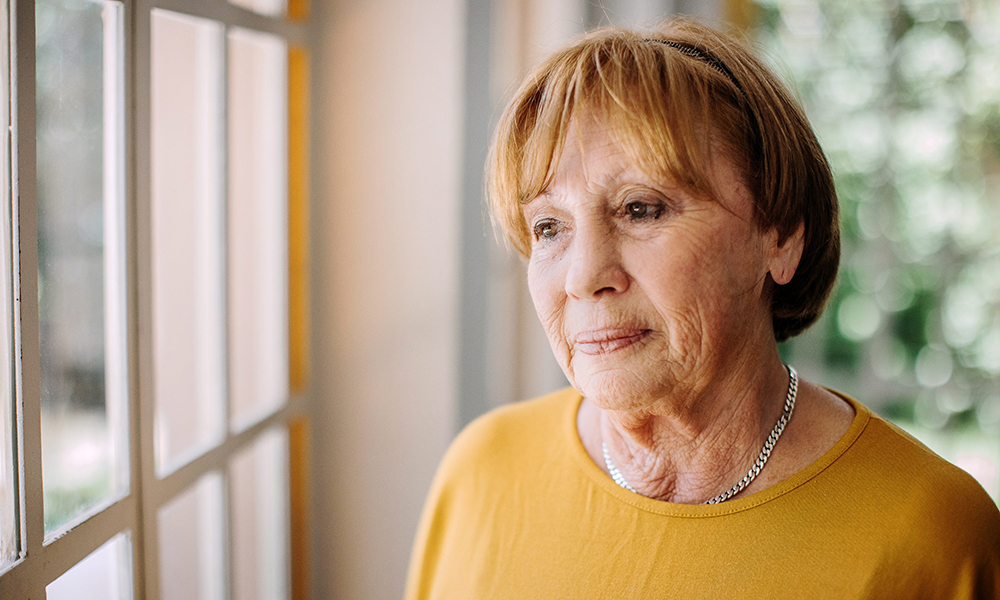
在退休儲(chǔ)蓄方面,,即使是牛市也無法助力女性趕上男性。
在一項(xiàng)最新研究中,,研究人員對(duì)近期退休人員在經(jīng)歷牛市和熊市之后的資產(chǎn)價(jià)值進(jìn)行了模擬分析,。他們發(fā)現(xiàn),牛市過后,,女性退休儲(chǔ)蓄中位數(shù)為18.46萬美元,,而熊市過后,男性退休儲(chǔ)蓄中位數(shù)為19.94萬美元,。
研究數(shù)據(jù)顯示,,由于男性一開始的金融資產(chǎn)比女性多45%,因此即使在最佳市場(chǎng)條件下,,女性也無法迎頭趕上,。女性退休儲(chǔ)蓄中位數(shù)為18.5萬美元,而男性為26.9萬美元,。
為了進(jìn)行實(shí)驗(yàn),,研究人員估算了熊市和牛市的收益率。對(duì)于熊市,,他們使用了1973年至1979年間標(biāo)準(zhǔn)普爾500指數(shù)和10年期債券的平均回報(bào)率,,當(dāng)時(shí)美國(guó)經(jīng)濟(jì)正遭受滯脹。牛市的代表是2017年至2022年的回報(bào)率,,當(dāng)時(shí)股市極其強(qiáng)勁,。該分析還考慮到,,這些老年人每年將從儲(chǔ)蓄中提取7.5%的資金來支付生活費(fèi)用,幾乎每個(gè)人在退休后都會(huì)這樣做,。然后,,他們將所有這些因素都應(yīng)用于女性和男性的儲(chǔ)蓄中位數(shù)估算過程中。
這份報(bào)告是由終身收入聯(lián)盟(Alliance for Lifetime Income)委托撰寫的,,該聯(lián)盟是一個(gè)退休計(jì)劃服務(wù)機(jī)構(gòu)的行業(yè)組織,,研究了“嬰兒潮高峰期人群”的退休準(zhǔn)備情況?!皨雰撼备叻迤谌巳骸敝傅氖?959年至1964年出生的人,。“嬰兒潮高峰期出生的人口”達(dá)3000萬,,大量人員將在未來5年內(nèi)退休,,占總?cè)丝谙喈?dāng)大的比例。他們中是否有足夠多的人在經(jīng)濟(jì)上做好退休準(zhǔn)備,,將對(duì)整個(gè)經(jīng)濟(jì)產(chǎn)生連鎖反應(yīng),。這些“嬰兒潮高峰期人群”為退休儲(chǔ)蓄的錢越多,美國(guó)社會(huì)保障網(wǎng)承受的壓力就越小,,更不必提及“嬰兒潮高峰期人群”對(duì)退休后生活質(zhì)量的期望了,。
林肯金融集團(tuán)(Lincoln Financial Group)首席執(zhí)行官艾倫·庫(kù)珀在有關(guān)該報(bào)告的小組討論會(huì)上表示:“人們退休后,不想整天坐在椅子上看電視或網(wǎng)飛節(jié)目(Netflix),。他們實(shí)際上想走出去體驗(yàn)生活,,做工作時(shí)無法做的事情?!?/p>
薪酬差距使女性更難退休
研究顯示,,即使是準(zhǔn)備相對(duì)充分的“嬰兒潮高峰期人群”,市場(chǎng)普遍看跌也會(huì)危及他們的退休生活,。在不同的市場(chǎng)條件下,,男性和女性的退休賬戶增長(zhǎng)情況如何,說明了一生中薪酬不平等的影響有多持久,,以及解決不平等有多困難,。除了儲(chǔ)蓄賬戶中位數(shù)比男性少8.4萬美元之外,女性在所有有助于實(shí)現(xiàn)舒適退休生活的資產(chǎn)類別中的表現(xiàn)都不如男性,。她們擁有的房屋價(jià)值比男性低5%,,獲得的社會(huì)保障福利比男性低25%。
保誠(chéng)(Prudential)執(zhí)行副總裁兼美國(guó)業(yè)務(wù)主管卡羅琳·費(fèi)尼表示,,要幫助女性建立更好的退休積蓄,,就必須首先解決根本性原因。
其中包括性別薪酬差距和主要面向男性的金融業(yè)。皮尤研究中心(Pew Research)的數(shù)據(jù)顯示,,截至2023年3月,,男性每賺1美元,女性只能賺82美分,。
費(fèi)尼在小組討論中說:“這種薪酬差距會(huì)導(dǎo)致儲(chǔ)蓄減少,,這是現(xiàn)實(shí)?!?/p>
她補(bǔ)充說,,一些研究表明,在投資方面,,女性的平均風(fēng)險(xiǎn)承受能力較低,。
女性在退休后可能面臨更高的支出
費(fèi)尼的觀點(diǎn)曾一度被認(rèn)為是金融界的標(biāo)準(zhǔn)假設(shè)。然而,,近年來這一論斷變得更有層次,。《哈佛商業(yè)評(píng)論》最近的一項(xiàng)研究發(fā)現(xiàn),,在影響力投資方面,,女性的風(fēng)險(xiǎn)承受能力實(shí)際上高于男性。其他研究表明,,女性更明智,,這可能會(huì)被簡(jiǎn)單地歸結(jié)為規(guī)避風(fēng)險(xiǎn)。還有更多的證據(jù)表明,,女性在投資方面更加謹(jǐn)慎,,因?yàn)樗齻冇X得自己可以獲得的資源和建議較少。
金融業(yè)被認(rèn)為是“男性俱樂部”,,再加上“女性不如男性精于理財(cái)”的刻板印象,這意味著她們?cè)讷@得投資建議方面往往得不到全面的服務(wù)支持,。這使得女性比許多男性更難掌握合適的專業(yè)知識(shí),,而男性也可能不是金融專家。理財(cái)規(guī)劃公司信安(Principal)的一項(xiàng)研究顯示,,三分之二的男性表示,,他們很容易獲得高質(zhì)量的投資產(chǎn)品,而女性的這一比例只有39%,。
費(fèi)尼說:“當(dāng)然,,如果把這些因素綜合起來,女性要想在退休后過上有經(jīng)濟(jì)保障的生活就會(huì)困難得多,?!?/p>
更糟糕的是,女性退休后不僅資金更少,而且由于她們壽命更長(zhǎng),,更有可能成為照顧者,,她們的開支也會(huì)增加。大多數(shù)美國(guó)人都不善于估計(jì)他們的退休生活將持續(xù)多久,。如果女性不僅要照顧自己,,還要照顧他人,即使到了晚年,,這種差距只會(huì)變得更加嚴(yán)重,。根據(jù)家庭照顧者聯(lián)盟(Family Caregiver Alliance)的數(shù)據(jù),超過75%的照顧者是女性,。即使是作為照顧者的職業(yè)女性,,她們的退休生活也會(huì)受到?jīng)_擊,因?yàn)槠浣?jīng)濟(jì)負(fù)擔(dān)會(huì)加重(通常是在工資已經(jīng)較低的情況下),,這意味著她們?yōu)樽约旱耐砟陜?chǔ)蓄的資金會(huì)減少,。
為了減輕退休準(zhǔn)備的難度,費(fèi)尼有一個(gè)簡(jiǎn)單的建議:尋求幫助,。她說:“世界上沒有愚蠢的問題,。”(財(cái)富中文網(wǎng))
譯者:中慧言-王芳
在退休儲(chǔ)蓄方面,,即使是牛市也無法助力女性趕上男性,。
在一項(xiàng)最新研究中,研究人員對(duì)近期退休人員在經(jīng)歷牛市和熊市之后的資產(chǎn)價(jià)值進(jìn)行了模擬分析,。他們發(fā)現(xiàn),,牛市過后,女性退休儲(chǔ)蓄中位數(shù)為18.46萬美元,,而熊市過后,,男性退休儲(chǔ)蓄中位數(shù)為19.94萬美元。
研究數(shù)據(jù)顯示,,由于男性一開始的金融資產(chǎn)比女性多45%,,因此即使在最佳市場(chǎng)條件下,女性也無法迎頭趕上,。女性退休儲(chǔ)蓄中位數(shù)為18.5萬美元,,而男性為26.9萬美元。
為了進(jìn)行實(shí)驗(yàn),,研究人員估算了熊市和牛市的收益率,。對(duì)于熊市,他們使用了1973年至1979年間標(biāo)準(zhǔn)普爾500指數(shù)和10年期債券的平均回報(bào)率,,當(dāng)時(shí)美國(guó)經(jīng)濟(jì)正遭受滯脹,。牛市的代表是2017年至2022年的回報(bào)率,當(dāng)時(shí)股市極其強(qiáng)勁。該分析還考慮到,,這些老年人每年將從儲(chǔ)蓄中提取7.5%的資金來支付生活費(fèi)用,,幾乎每個(gè)人在退休后都會(huì)這樣做。然后,,他們將所有這些因素都應(yīng)用于女性和男性的儲(chǔ)蓄中位數(shù)估算過程中,。
這份報(bào)告是由終身收入聯(lián)盟(Alliance for Lifetime Income)委托撰寫的,該聯(lián)盟是一個(gè)退休計(jì)劃服務(wù)機(jī)構(gòu)的行業(yè)組織,,研究了“嬰兒潮高峰期人群”的退休準(zhǔn)備情況,。“嬰兒潮高峰期人群”指的是1959年至1964年出生的人,?!皨雰撼备叻迤诔錾娜丝凇边_(dá)3000萬,大量人員將在未來5年內(nèi)退休,,占總?cè)丝谙喈?dāng)大的比例,。他們中是否有足夠多的人在經(jīng)濟(jì)上做好退休準(zhǔn)備,將對(duì)整個(gè)經(jīng)濟(jì)產(chǎn)生連鎖反應(yīng),。這些“嬰兒潮高峰期人群”為退休儲(chǔ)蓄的錢越多,,美國(guó)社會(huì)保障網(wǎng)承受的壓力就越小,更不必提及“嬰兒潮高峰期人群”對(duì)退休后生活質(zhì)量的期望了,。
林肯金融集團(tuán)(Lincoln Financial Group)首席執(zhí)行官艾倫·庫(kù)珀在有關(guān)該報(bào)告的小組討論會(huì)上表示:“人們退休后,,不想整天坐在椅子上看電視或網(wǎng)飛節(jié)目(Netflix)。他們實(shí)際上想走出去體驗(yàn)生活,,做工作時(shí)無法做的事情,。”
薪酬差距使女性更難退休
研究顯示,,即使是準(zhǔn)備相對(duì)充分的“嬰兒潮高峰期人群”,,市場(chǎng)普遍看跌也會(huì)危及他們的退休生活。在不同的市場(chǎng)條件下,,男性和女性的退休賬戶增長(zhǎng)情況如何,,說明了一生中薪酬不平等的影響有多持久,以及解決不平等有多困難,。除了儲(chǔ)蓄賬戶中位數(shù)比男性少8.4萬美元之外,女性在所有有助于實(shí)現(xiàn)舒適退休生活的資產(chǎn)類別中的表現(xiàn)都不如男性,。她們擁有的房屋價(jià)值比男性低5%,,獲得的社會(huì)保障福利比男性低25%。
保誠(chéng)(Prudential)執(zhí)行副總裁兼美國(guó)業(yè)務(wù)主管卡羅琳·費(fèi)尼表示,,要幫助女性建立更好的退休積蓄,,就必須首先解決根本性原因。
其中包括性別薪酬差距和主要面向男性的金融業(yè)。皮尤研究中心(Pew Research)的數(shù)據(jù)顯示,,截至2023年3月,,男性每賺1美元,女性只能賺82美分,。
費(fèi)尼在小組討論中說:“這種薪酬差距會(huì)導(dǎo)致儲(chǔ)蓄減少,,這是現(xiàn)實(shí)?!?/p>
她補(bǔ)充說,,一些研究表明,在投資方面,,女性的平均風(fēng)險(xiǎn)承受能力較低,。
女性在退休后可能面臨更高的支出
費(fèi)尼的觀點(diǎn)曾一度被認(rèn)為是金融界的標(biāo)準(zhǔn)假設(shè)。然而,,近年來這一論斷變得更有層次,。《哈佛商業(yè)評(píng)論》最近的一項(xiàng)研究發(fā)現(xiàn),,在影響力投資方面,,女性的風(fēng)險(xiǎn)承受能力實(shí)際上高于男性。其他研究表明,,女性更明智,,這可能會(huì)被簡(jiǎn)單地歸結(jié)為規(guī)避風(fēng)險(xiǎn)。還有更多的證據(jù)表明,,女性在投資方面更加謹(jǐn)慎,,因?yàn)樗齻冇X得自己可以獲得的資源和建議較少。
金融業(yè)被認(rèn)為是“男性俱樂部”,,再加上“女性不如男性精于理財(cái)”的刻板印象,,這意味著她們?cè)讷@得投資建議方面往往得不到全面的服務(wù)支持。這使得女性比許多男性更難掌握合適的專業(yè)知識(shí),,而男性也可能不是金融專家,。理財(cái)規(guī)劃公司信安(Principal)的一項(xiàng)研究顯示,三分之二的男性表示,,他們很容易獲得高質(zhì)量的投資產(chǎn)品,,而女性的這一比例只有39%。
費(fèi)尼說:“當(dāng)然,,如果把這些因素綜合起來,,女性要想在退休后過上有經(jīng)濟(jì)保障的生活就會(huì)困難得多?!?/p>
更糟糕的是,,女性退休后不僅資金更少,,而且由于她們壽命更長(zhǎng),更有可能成為照顧者,,她們的開支也會(huì)增加,。大多數(shù)美國(guó)人都不善于估計(jì)他們的退休生活將持續(xù)多久。如果女性不僅要照顧自己,,還要照顧他人,,即使到了晚年,這種差距只會(huì)變得更加嚴(yán)重,。根據(jù)家庭照顧者聯(lián)盟(Family Caregiver Alliance)的數(shù)據(jù),,超過75%的照顧者是女性。即使是作為照顧者的職業(yè)女性,,她們的退休生活也會(huì)受到?jīng)_擊,,因?yàn)槠浣?jīng)濟(jì)負(fù)擔(dān)會(huì)加重(通常是在工資已經(jīng)較低的情況下),這意味著她們?yōu)樽约旱耐砟陜?chǔ)蓄的資金會(huì)減少,。
為了減輕退休準(zhǔn)備的難度,,費(fèi)尼有一個(gè)簡(jiǎn)單的建議:尋求幫助。她說:“世界上沒有愚蠢的問題,?!保ㄘ?cái)富中文網(wǎng))
譯者:中慧言-王芳
Even a bull market can’t help women catch up to men when it comes to retirement savings.
In a new study released Thursday, researchers offered an analysis that modeled the asset values recent retirees would have after a bull market and a bear market. They found that after a bull market, the median value of women’s retirement savings would be $184,600, while men would have $199,400 after a bear market.
Because men start off with 45% more financial assets than women, according to the study’s data, women were unable to catch up in even the best market conditions. The median retirement savings for women is $185,000, while for men it is $269,000.
To run their experiment the researchers estimated rates of return for a bear market and a bull market. For the bear market, they used the average return rate of the S&P 500 and 10-year bonds from 1973 to 1979, when the economy was suffering from stagflation. The stand-in for a bull market featured return rates from 2017 to 2022, when the stock market was particularly robust. The analysis also factored in that the seniors in question would withdraw 7.5% of their savings each year to fund their living expenses, as virtually everyone does during retirement. They then applied all those factors to the median savings for women and men.
The report, commissioned by the Alliance for Lifetime Income, a trade organization of retirement plan servicers, examined the retirement readiness of “peak boomers,” defined as people born between 1959 and 1964. Numbering 30 million, “peak boomers” represent an exceptionally large segment of the population that is poised to retire en masse over the next five years. Whether or not enough of them are financially prepared to retire will have ripple effects across the economy. The more money these peak boomers have saved for retirement, the less strain the U.S.’s social safety net will be under—to say nothing of what kind of quality of life these boomers might expect in retirement.
“When people retire they don’t just want to sit in a chair all day long, and watch TV or Netflix,” said Lincoln Financial Group CEO Ellen Cooper, during a panel about the report on Thursday. “They actually want to go out and experience life and do the things they weren’t able to do when they were working.”
The pay gap makes retirement harder for women
A broadly bearish market would jeopardize even relatively well prepared peak boomers, according to the research. How much the retirement accounts of men and women grow in different market conditions illustrates how long-lasting the effects of a lifetime of pay inequities can be, and how difficult to overcome. Aside from having $84,000 less in their median savings accounts, women fare worse than men across all asset classes that can contribute to a comfortable retirement. They owned homes that were 5% less valuable and got Social Security benefits that were 25% lower than men’s.
Helping women build better nest eggs in retirement requires addressing the root causes first, said Caroline Feeney, Prudential executive vice president and head of U.S. businesses.
They include the gender pay gap and a financial industry geared primarily toward men. As of March 2023, women earned 82 cents for every dollar that men did, according to data from Pew Research.
“This pay gap translates into lower savings—that’s a reality,” Feeney said during the panel.
She added that some research has shown women on average have a lower risk tolerance when it comes to investing.
Women can face higher expenses during retirement
Feeney’s point was once considered a standard assumption in financial circles. However, in recent years that assertion has become more layered. A recent study from the Harvard Business Review found that when it came to impact investing, women actually exhibited a higher risk tolerance than men. Other research indicates women are more judicious, which can get reduced to simply being risk-averse. There’s also more evidence pointing to the fact that women feel more cautious about investing because they feel as if they have fewer resources and advice available to them.
The financial industry’s reputation as a boys’ club, along with the stereotype that women are less money-savvy than men, has meant they’re often underserved when it comes to investment advice. That makes it harder for women to find the right expertise than many men, who also may not be financial experts. Two-thirds of men say they have easy access to high-quality investment products compared with just 39% of women, according to a study from financial planner Principal.
“You pull all of that together, of course, it makes it far more difficult for women to be in a position to live a secure financial retirement,” Feeney said.
To make matters worse, women not only have less money in retirement but they can have more expenses as well because they live longer and are more likely to be a caregiver. Most Americans do a poor job of estimating how long their retirement will last. That shortfall only gets worsened when women have to care for someone else beyond just themselves, even in old age. More than 75% of caregivers are women, according to the Family Caregiver Alliance. Even working women who are caregivers can take a hit to their retirement, because they have an added financial burden (often on an already lower salary), which means they have less to sock away for their golden years.
To mitigate the difficulties of preparing for retirement, Feeney has simple advice: ask for help. “There are no silly questions,” she said.






